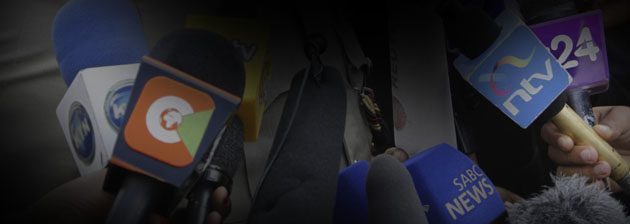By Boni Odinga, Internews in Kenya.
Just the other day after separate attacks on journalists Dennis Onsarigo and Jackie Maribe, I posed a question on social media: Were the attacks on the journalists coincidental? Very quickly someone responded on my wall telling me not to jump to conclusions…
The telling response is indicative of a trend that is taking root among Kenyans, including journalists. But I also asked my friends on social media; if Isaac Newton had brushed off the falling of the apple from a tree as a normal occurrence, would we have known of gravity?
Increasingly, following a well intentioned campaign that has narcotized the country on peace messages, the Kenyan society is becoming Orwellian much akin to George Orwell’s seminal 1984, where people are not only being herded into a group-think but everyone is trying to outdo each other in playing thought- police.
Be it as it may, this is more critical in the world of journalism. On March 8th, a day before the announcement of the presidential results, the call of duty took me to the Jubilee media centre at the Catholic University. Fellow journalist and Jubilee Alliance propagandist Dennis Itumbi gave me a rather cheeky introduction to the press corps hanging around the centre: “Meet Boni Odinga, the man who in 2007 set the country ablaze with his infamous question to the late former Electoral Commission of Kenya chair Samuel Kivuitu”. After that we all engaged in a healthy argument.
The question I had put to Kivuitu was: “Did Mwai Kibaki win the election fairly?” to which he replied; “I don’t know”. When I went back to the newsroom I was told to hand over the story to Alex Chamwada who produced it. My question to Itumbi recently was; just how does asking a good question trigger chaos? But there we were, with a new found brand of Kenyan journalism. Journalism of playing nil by mouth. Nodding along and by and large giving the Independent Electoral and Boundaries Commission (IEBC) an easy time.
But the neutering of Kenyan journalists this time round or this ‘professional surrender’ to quote veteran journalist Michela Wrong, stems from the best of intentions. Kenyan journalists are all too careful not to whip up ethnic passions; a crime they stand accused of by proxy in the person of Joshua arap Sang, charged with crimes against humanity at the International Criminal Court, in The Hague.
During the period of the election, journalists were allergic to any tip-offs that suggested that an electoral anomaly had been detected somewhere lest they cause a breach of the peace. But given human nature and what is expected of such a tightly contested election, anomalies, delays started appearing all over the place but with journalist not showing interest in coverage, the social media took over and before long tension was high with many conspiracy theorists coming up with possible whodunnit.
The climax was pillaging of the western press by the citizenry and the Kenyan media. CNN’s Nema Elbagir, who did a rather theatrical story on some militia preparing for war if things were to go belly up was on the receiving end on social media. Many Kenyan twitterati using the hashtag #SomeonetellCNN criticized her for ratcheting up tensions unnecessarily. Despite what looked like an enactment, she captured the inter-ethnic hate simmering below the surface.
In trying to navigate what for many Kenyan journalists looks like a minefield, the Free and Fair Media program at Internews in Kenya organized a roundtable to help journalist come up with the right questions around the impending court case before the Supreme Court. In the roundtable, there were an advocate and electoral experts to help journalist understand the process, and how to report on it given sub judice concerns.
Preceding the election, Internews had organized workshops with the IEBC where the commission’s IT experts defended their electronic results transmission system as tamper proof. There was of course a flurry of questions from the journalists in attendance. Fast forward to the March 4 General Election and the failure of the same system and there was a deafening silence from journalists. It seems the fear of rocking the boat had induced paralysis.
The moot point is, being a conflict sensitive journalist doesn’t mean you don’t ask the relevant questions. For what journalists fail to do, will be done by others, hacks included, with worse consequences.




